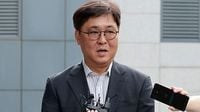Choi Hwi-young, the nominee for South Korea's Minister of Culture, Sports and Tourism, has recently voiced support for integrating domestic map data into global platforms like Google Maps, emphasizing its potential to boost foreign tourism in the country. In a written response submitted on July 28, 2025, to the National Assembly during his confirmation hearing, Choi highlighted the critical role that map services play for international travelers.
“Map services are one of the most important elements for global tourists when they travel,” Choi stated, underscoring the significance of accessible and reliable navigation tools in enhancing visitors' experiences. He pointed out that expanding global travel platform services such as Google and Apple’s direction services within South Korea would not only improve the convenience and satisfaction of foreign tourists but also invigorate regional tourism and contribute to the growth of the domestic tourism industry.
This stance marks a notable shift in the country's approach to map data, which has traditionally been tightly controlled due to national security concerns. South Korea currently enforces a prohibition on the export of high-precision domestic map data to overseas servers, a regulation that has drawn criticism for hindering tourism development.
Choi, who co-authored the 2024 book The Path of South Korea as a Tourism Powerhouse alongside Professor Choi Gyu-hwan of Kyung Hee University and other experts, described this policy as a “Galapagosian regulation” — a term used to describe isolated and outdated rules that prevent progress. In the book, he argued that the ban on exporting map data abroad obstructs the advancement of the tourism sector by limiting the integration of South Korea’s geographic information into widely used global platforms.
However, Choi also conveyed a cautious approach regarding the export of precise map data, distinguishing it from the broader expansion of travel platform services. He emphasized that while providing convenient navigation for tourists is important, exporting high-precision map data to servers outside South Korea is a completely different matter. “South Korea’s national security and the impact on domestic industries must be comprehensively considered,” he said, signaling the need for a balanced policy that safeguards security without stifling innovation and tourism growth.
Beyond the map data issue, Choi also addressed the future of Cheong Wa Dae, the presidential office and residence, which is set to resume its function after a period of public opening. The government plans to end general public access on July 31, 2025, to prepare for the presidential office’s return. Choi expressed his intention to work closely with relevant agencies to ensure that cultural heritage and historical research related to Cheong Wa Dae and the surrounding regions continue.
“Even if the presidential office returns, a certain level of Cheong Wa Dae’s opening is necessary,” Choi remarked. He highlighted the importance of maintaining Cheong Wa Dae as a space for communication with the public, noting that previous administrations have opened it in various ways to foster national dialogue. “The new government is expected to continue this role, allowing Cheong Wa Dae to breathe with the public,” he added.
Choi also commented on the contentious issue of relocating national art organizations from Seoul to provincial areas, a policy initiative promoted by the current Minister Yoo In-chon under the previous government. He acknowledged that relocating these organizations was considered a means to alleviate the concentration of artistic infrastructure in the capital and improve regional art environments. However, he also recognized the controversies surrounding the plan, including objections from the affected national art organization members and concerns about harmony with local art groups.
“We will open up various possibilities and engage in dialogue to explore practical solutions for activating the regional performing arts ecosystem,” Choi said, emphasizing a flexible and consultative approach to the issue.
Addressing criticisms about his lack of expertise in the culture, arts, and sports sectors — key areas under the Ministry of Culture, Sports and Tourism — Choi responded with humility. He pointed out his extensive experience and achievements in tourism, media, and internet portals but acknowledged the concerns raised. “I humbly accept the concerns and will fully listen to the difficulties in various fields such as culture, arts, and film,” he said. Choi pledged to develop and implement policies grounded in the realities of these sectors.
Choi’s statements come at a pivotal time as South Korea seeks to enhance its global tourism appeal while balancing security and cultural preservation. The integration of domestic map data into global platforms could mark a significant step forward in making South Korea more accessible and navigable for international visitors, potentially boosting tourism revenues and regional economies.
Yet, the delicate nature of high-precision map data export underscores the ongoing tension between openness and security. South Korea’s geographic information is considered sensitive, and any policy changes must carefully weigh the benefits against risks to national security and domestic industries.
Meanwhile, the planned closure of public access to Cheong Wa Dae and the return of the presidential office reflect broader shifts in government priorities and public engagement. Choi’s commitment to maintaining a degree of openness at Cheong Wa Dae signals an effort to preserve transparency and cultural connection amid administrative changes.
Similarly, the debate over relocating national art organizations highlights the challenges of decentralizing cultural institutions in a way that respects existing stakeholders while promoting regional development.
As Choi awaits confirmation, his vision for a tourism-friendly, culturally rich, and security-conscious South Korea presents a nuanced roadmap. His approach balances innovation with caution, tradition with modernization, and national interests with global integration.
South Korea stands at a crossroads where embracing global technologies like Google Maps could unlock new opportunities for tourism and economic growth, provided that national security and cultural heritage are carefully safeguarded. Choi Hwi-young’s perspectives offer a glimpse into how the Ministry of Culture, Sports and Tourism might navigate these complex issues in the years ahead.


